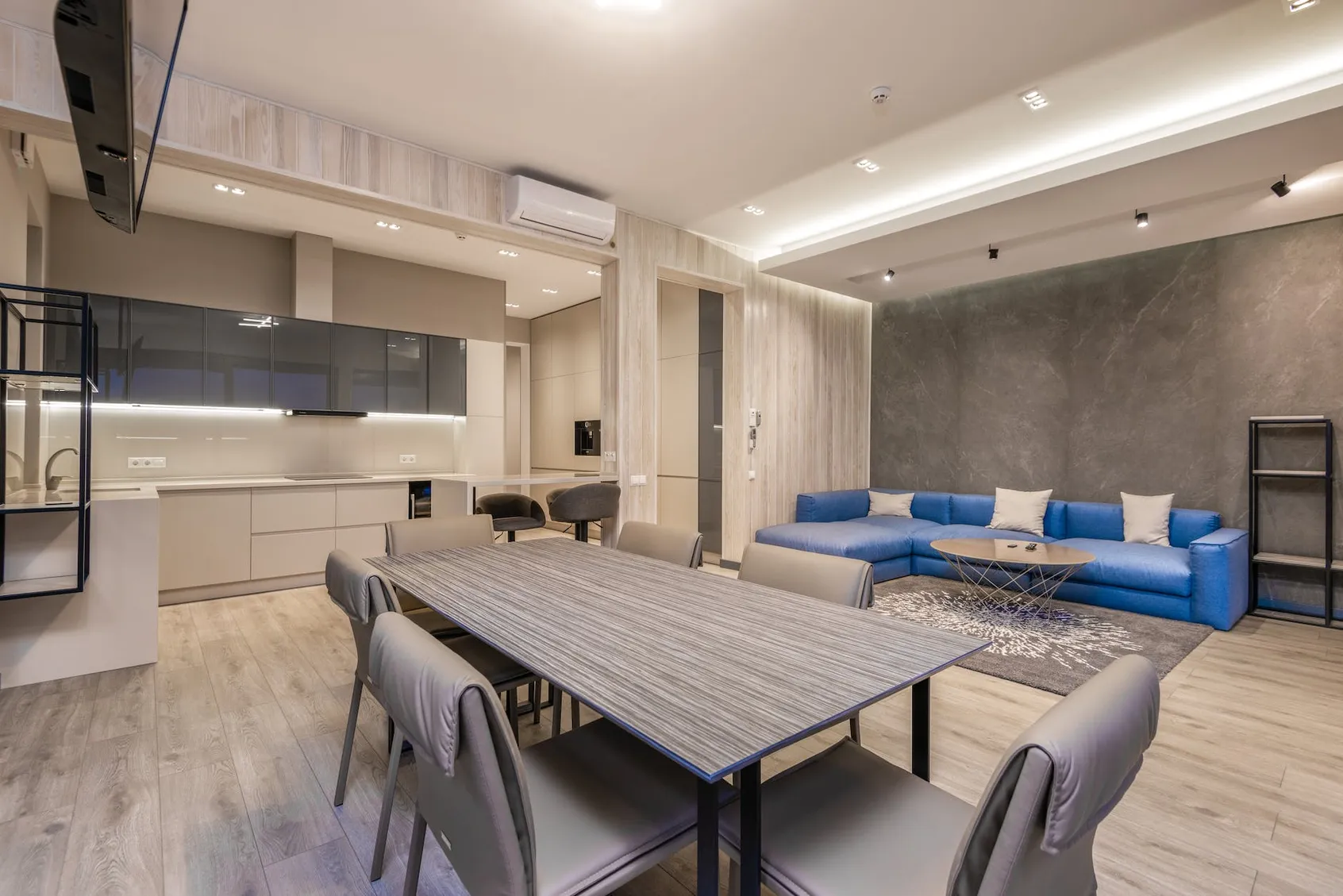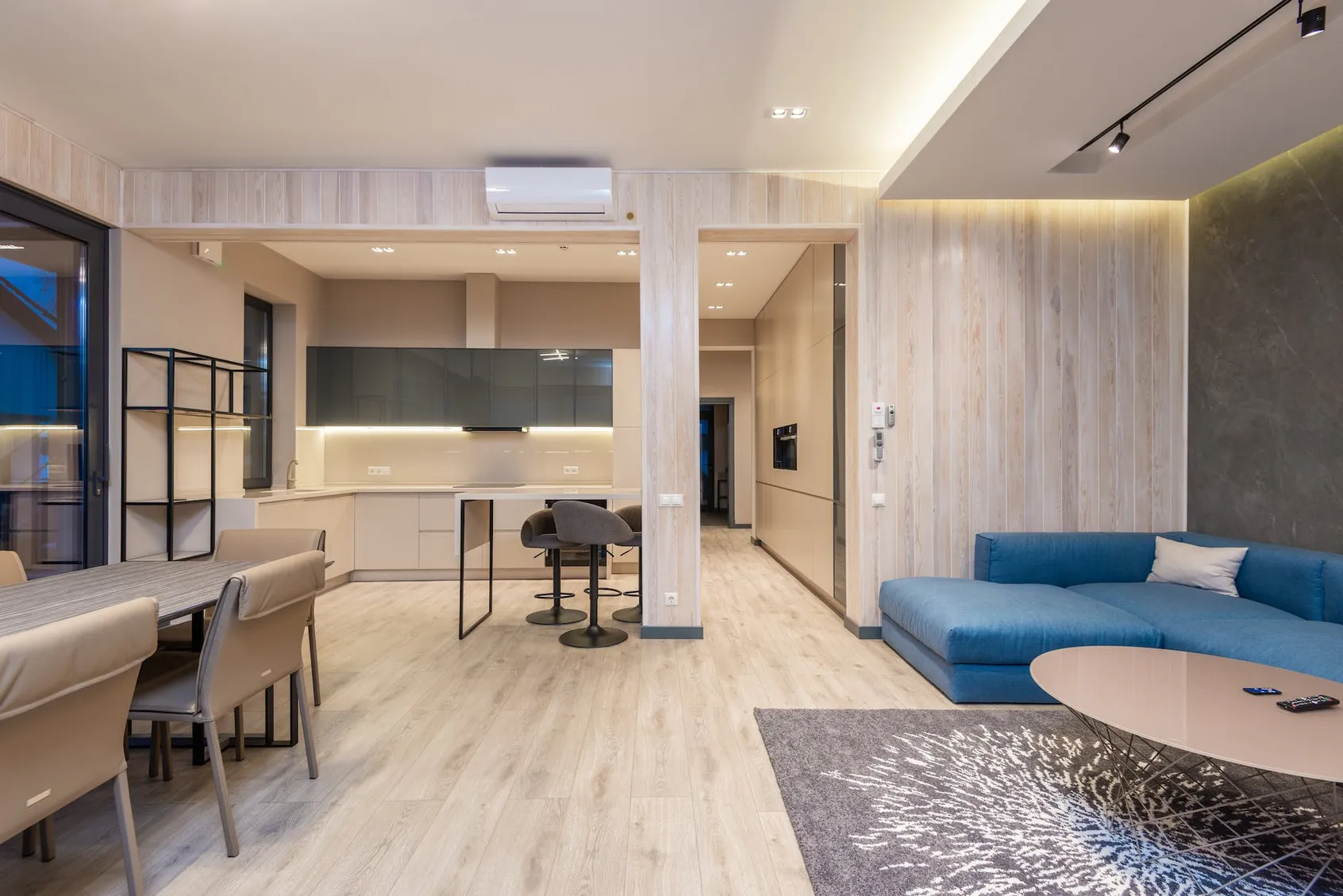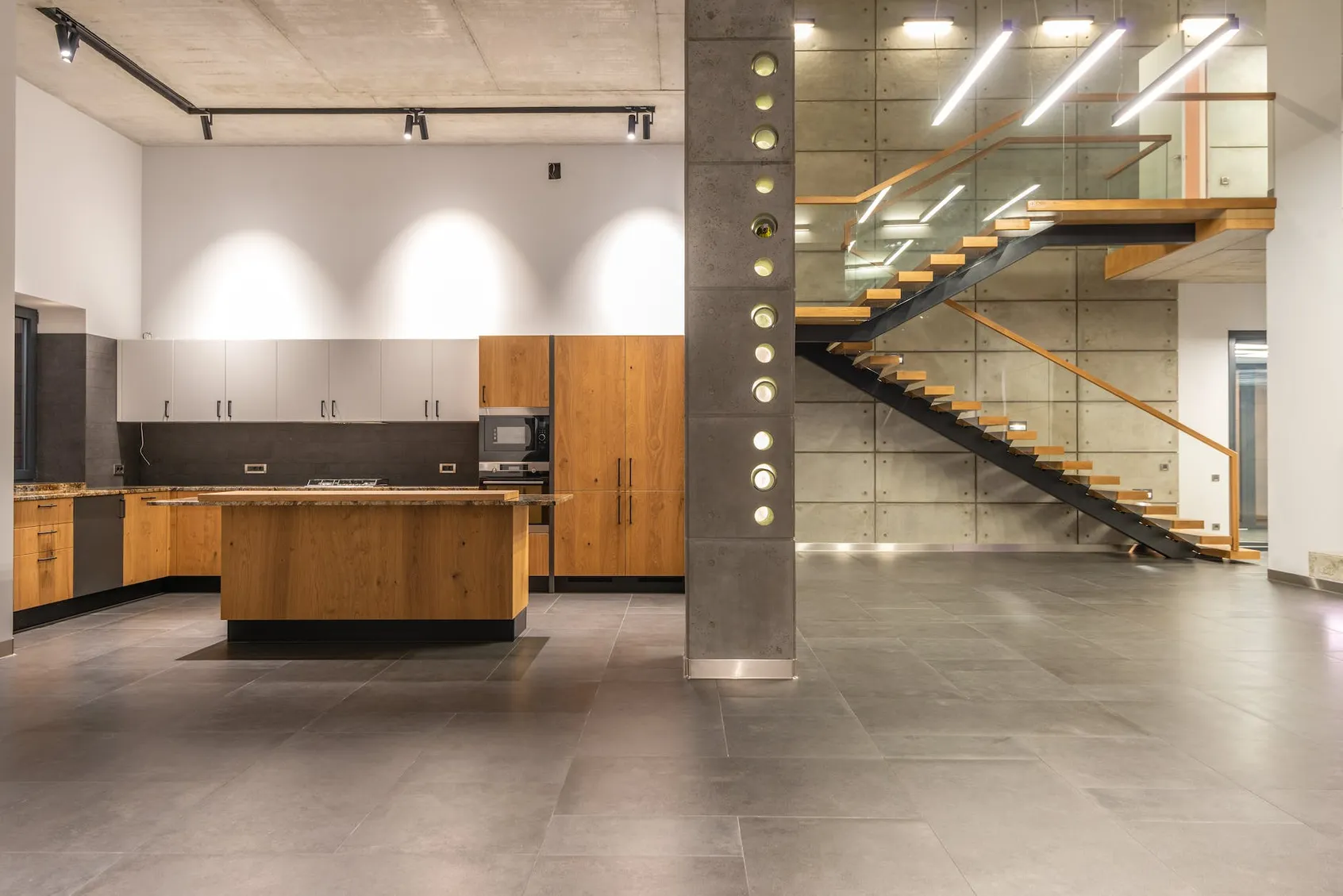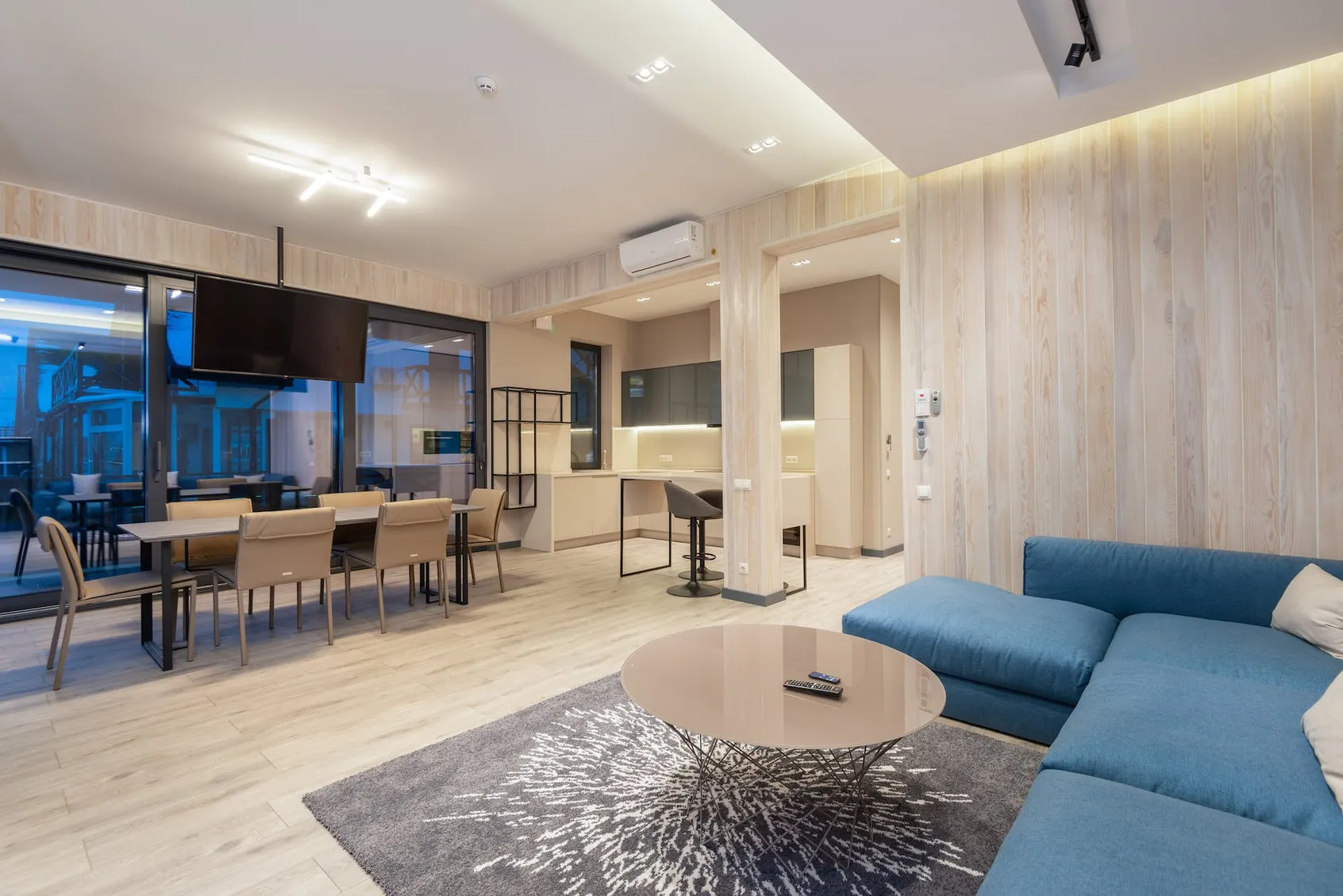A modular kitchen is a type of kitchen layout that uses pre-made cabinets and components to create a functional and aesthetically pleasing kitchen space. It is a great way to make the most of the available space and create a functional and stylish kitchen.
Modular kitchens are becoming increasingly popular, as they offer a wide range of design options, allowing you to create the perfect kitchen for your home. In this article, we will explore what is a modular kitchen and how it works.
What Is A Modular Kitchen?
A modular kitchen is a kitchen that has been designed and constructed as a unit. It is usually composed of standardized components that can be rearranged, altered, and combined to create a unique kitchen layout. Modular kitchens are becoming increasingly popular due to their affordability, flexibility, and convenience.
A modular kitchen consists of several modules or units arranged in a particular way. Depending on the design, the modules can be stacked, hung, or placed on the floor. The modules typically include cabinets, shelves, drawers, and countertops. Some modular kitchens include a refrigerator, dishwasher, and range or oven.
The modular kitchen is designed to make the kitchen space more efficient and functional. This is why modular kitchens often feature integrated storage solutions. For example, the cabinets may have drawers, shelves, and pull-out bins for easy access to items. Modular kitchens also usually have countertops designed for food preparation and storage.
Modular kitchens make it easy to customize the kitchen layout to fit a particular space or style. For example, a kitchen could be designed to have an island, a breakfast bar, or an extra sink. Adding additional modules, such as shelves and cupboards, can also expand storage space.
Modular kitchens are also easy to maintain and clean. Most components are made from materials that are easy to wipe down and maintain. Additionally, because the modules are typically made of lightweight materials, they can be easily moved around or rearranged if needed.

Benefits Of A Modular Kitchen
There are several benefits to having a modular kitchen:
- Customization: With modular kitchen design, you can customize your kitchen according to your needs and preferences. You can choose from different materials, finishes, colors, and accessories to create the perfect kitchen that reflects your style and personality.
- Space optimization: Modular kitchens are designed to maximize space utilization and efficiency. The cabinets and drawers in modular kitchens are built to fit seamlessly into your kitchen space, providing ample storage and keeping your counters clutter-free.
- Easy to maintain: Modular kitchens are designed to be easy to clean and maintain. The cabinets and countertops are typically made of materials resistant to scratches, stains, and water damage.
- Improved safety: Modular kitchens are designed to be safe and functional. The cabinets and drawers come with locking mechanisms to prevent accidents and mishaps.
- Increased home value: A well-designed modular kitchen can increase the value of your home. It adds a touch of modernity and sophistication to your living space, making it more attractive to potential buyers or renters.
Components Of A Modular Kitchen
A modular kitchen typically consists of several components that can be customized and arranged to meet each homeowner’s unique needs. Some of the most common components of a modular kitchen include:
- Cabinets: Modular kitchen cabinets are usually made of wood, MDF, or PVC materials. They can be arranged according to the available space and storage requirements.
- Countertop: The countertop is an important component of a modular kitchen. It can be made of materials such as granite, marble, or quartz.
- Appliances: Modular kitchens typically include various appliances such as a refrigerator, microwave, oven, and cooktop. These appliances can be arranged to optimize the functionality of the kitchen.
- Sink: A sink is a crucial kitchen component, and modular kitchens are no exception. The sink can be installed in different locations depending on the kitchen layout.
- Storage: There are several storage options available in a modular kitchen, such as drawers, shelves, and cabinets. These can be customized to suit the specific needs of each individual.
- Accessories: Accessories like chimneys, lighting, and backsplashes can enhance the look and functionality of a modular kitchen.
Different Types Of Modular Kitchens
You can choose from several types of modular kitchens depending on your preferences and needs. Here are a few popular types:
- L-shaped modular kitchen: The L-shaped modular kitchen is a popular choice as it fits well into most homes. It comprises cabinets and shelves on two perpendicular walls, creating an efficient workspace.
- Straight modular kitchen: The straight modular kitchen is a simple, functional kitchen layout with cabinets and appliances along one wall. It is best suited for small spaces and apartments.
- Island modular kitchen: The island modular kitchen is a modern and stylish kitchen layout with a freestanding countertop in the center that can be used as a workspace, dining table, or storage area.
- U-shaped modular kitchen: The U-shaped modular kitchen is another popular and practical kitchen layout with cabinets and appliances arranged along three adjoining walls. It offers ample storage and workspaces, making it perfect for larger families or people who love to cook.
- Parallel modular kitchen: It has two opposite walls with cabinets and appliances, making it a perfect fit for narrow kitchens. This layout provides excellent storage space and work areas but may only be suitable for some families.

Design Considerations For A Modular Kitchen
Designing a modular kitchen requires careful planning and consideration of various factors. The following are some key design considerations to keep in mind:
- Space – The first thing to consider is the space available for the modular kitchen. Measure the kitchen area, and then plan the layout accordingly. Determine the location of the sink, refrigerator, stove, and other appliances to ensure optimal functionality.
- Storage – Storage is an essential component of any modular kitchen. Figure out the types and amounts of storage you need, such as cabinets, drawers, and shelves.
- Countertops – Choose countertops based on your kitchen usage. For instance, granite is popular for its durability, while marble and quartz offer an elegant appearance.
- Lighting – Proper lighting is important to make the kitchen fully functional. Install task lighting under cabinets and ambient lighting in the ceiling area to create a well-lit kitchen.
- Ventilation – Ventilation is vital, especially if you have a gas stove. Install chimneys to eliminate smoke and other gases irritating your eyes and nose.
- Color scheme – Choose a color scheme that complements the overall design of your home. Neutral colors like black, white, and grey offer versatility, while bright colors can add a splash of color and vibrancy.
- Materials – Choose materials that can withstand heat, moisture, and daily use. Materials like plywood, MDF, and stainless steel are durable and cost-effective.
Tips For Installing A Modular Kitchen
Installing a modular kitchen can be a great way to update your living space and make it more functional. Here are some tips to consider when installing a modular kitchen:
- Plan and design the space carefully: Before purchasing any modular units, take measurements of your kitchen area and plan the layout carefully. Consider the traffic flow, and make sure that there is enough space to move around comfortably.
- Choose the right materials: When selecting modular units, look for high-quality materials that are durable and long-lasting. Consider materials like PVC, Plywood, and MDF.
- Hire a professional installer: While it’s possible to install modular units yourself, it’s often best to hire the services of a professional. An experienced installer will ensure that the units are installed securely and last many years.
- Consider storage options: Modular kitchens can offer many storage options, so select units that fit your specific storage needs. Look for cabinets and drawers that optimize space and make it easier to organize your kitchen.
- Add lighting: Lighting is an important aspect of any kitchen, so install adequate lighting that illuminates the entire space. Consider adding under-cabinet lighting to create a warm and inviting atmosphere.
Cost Of A Modular Kitchen
A modular kitchen is a great way to update your kitchen cost-effectively. It is a pre-constructed kitchen comprising units or cabinets assembled in a factory and then installed in the home. This makes it easier for the homeowner to customize their kitchen with the latest trends in modern kitchen design.
The cost of a modular kitchen varies depending on the style, size, and materials you choose. The basic cost can range from a few thousand dollars to several thousand, depending on the complexity of the design. In addition to the cost of the cabinets, you will also need to factor in installation and countertops. If you’re looking for a more customized look, you may also need to factor in additional costs for custom cabinetry and countertops.
A modular kitchen is a great option if you’re looking to upgrade your kitchen cost-effectively. You can customize the design to fit your needs and budget while getting a modern kitchen design. Plenty of options are available, so you can find a design that meets your needs and works with your budget. You can even get custom cabinetry and countertops to give your kitchen a unique look.
The modular kitchen is also easy to install and maintain. You don’t have to spend hours putting together a complicated kitchen design. The cabinets are already pre-assembled, so you just have to install them. Most cabinets come with instructions for easy installation and maintenance.

Advantages And Disadvantages Of Modular Kitchens
Modular kitchens have become increasingly popular in recent years due to their convenience and versatility. However, like any other design option, they come with their own set of advantages and disadvantages.
Advantages
- Customizable: Modular kitchens can be incredibly customizable, allowing you to design a layout and select individual components according to your specific needs.
- Space-efficient: The modular design of these kitchens maximizes space utilization, making them perfect for smaller apartments or homes.
- Easy to install: Modular kitchens are much easier to install than traditional kitchens and take less time to set up.
- Easy to clean: Modular kitchens are often designed using durable, easy-to-clean materials such as laminates or PVC, making them low-maintenance and long-lasting.
Disadvantages
- Limited flexibility: Once you’ve installed a modular kitchen, it can be difficult to make changes or alterations to the layout.
- Cost: Modular kitchens can be expensive, especially if you opt for high-end materials and appliances.
- Less durable: Depending on the quality of materials and workmanship, modular kitchens may not be as durable and long-lasting as traditional kitchens.
- Limited customization: While modular kitchens are customizable, they aren’t as customizable as traditional kitchens, where you have limitless options.
Maintenance Of A Modular Kitchen
Modular kitchens are a great addition to any home as they are functional and stylish. Proper maintenance of your modular kitchen will ensure it remains in top condition for years. Here are a few tips to keep your modular kitchen looking and functioning at its best:
- Clean regularly: Make sure to clean your modular kitchen regularly with mild soap and warm water. Avoid using abrasive cleaners as they may damage the surface of your kitchen.
- Wipe spills immediately: Accidents happen, but it’s important to wipe spills immediately to prevent stains or damage to your modular kitchen.
- Check hardware: Check the hardware and fittings of your modular kitchen regularly to ensure they are in good condition. Tighten any loose screws or bolts as needed.
- Use protective mats: Use protective mats for your kitchen appliances and utensils to prevent scratches or damage to your kitchen counter.
- De-clutter: Keep your kitchen countertops clutter-free to prevent damage to the surface of your modular kitchen.
- Avoid direct heat: Avoid placing hot pans or pots directly on your modular kitchen surface. Instead, use heat-resistant pads to protect your kitchen surface.
Accessories For A Modular Kitchen
When it comes to accessorizing a modular kitchen, the options are endless. Here are a few accessories that can help improve functionality and organization in your kitchen:
- Pull-out drawers and shelves: These accessories add convenience to your kitchen by making it easier to access hard-to-reach items and maximize storage space.
- Cabinet organizers: These include organizers for dishware, cutlery, spices, and more. They help keep everything neat and organized, right where you need it.
- Corner accessories: Corners are often underutilized in a kitchen. Accessories like corner pullout shelves and carousel cabinets offer a way to maximize storage space and use every inch of your kitchen.
- Kitchen backsplash: This accessory adds an aesthetic appeal to your kitchen and protects the walls from splatters and spills. Various materials like ceramic tiles, glass tiles, and natural stone are available.
- Lighting: Proper lighting can significantly enhance the functionality of your kitchen. Pendant lights and under-cabinet lighting can brighten your workspace and illuminate your countertops.
Conclusion
In conclusion, a modular kitchen is a great way to create a custom look and feel in your kitchen. It is an efficient way to save space and ensure you have everything within easy reach. It is a great option for creating a modern and stylish kitchen without sacrificing storage and functionality. With a wide range of designs and styles available, there’s something to suit every home.
Frequently Asked Questions:
What is the difference between a modular kitchen and a normal kitchen?
Modular kitchens are pre-fabricated and assembled in a factory, while normal kitchens are constructed onsite using custom-made pieces. Modular kitchens are easier to install and more cost-effective, and they are designed to fit perfectly into the layout of the kitchen.
What are the disadvantages of a modular kitchen?
Modular kitchens may not fit a space’s specific layout and design, can be expensive with customization options, may not have the same durability as custom-made kitchens, require professional installation, and may not be compatible with future redecorations or remodeling.
What is included in a modular kitchen?
A modular kitchen typically includes cabinets, countertops, drawers, sinks, backsplashes, appliances, lighting, and other accessories.
Why is a modular kitchen called modular?
Modular kitchens are called modular because they comprise individual cabinets, drawers, and other components that can be arranged and rearranged in any desired configuration. This makes them easily customizable and allows homeowners to create the perfect kitchen layout that suits their needs.
What is the Cost Of A Modular Kitchen?
The cost of a modular kitchen depends on several factors, including the size of the kitchen, the type of cabinets and countertops, the type of appliances, and the level of customization. A basic modular kitchen can cost anywhere from $10,000 to $50,000.
What are the benefits of having a modular kitchen?
Modular kitchens are functional and efficient, offering customizable cabinets, pull-out drawers, and specialized storage compartments to organize essentials and reduce clutter. They are easy to clean and maintain, have various design options, and increase the resale value of your property.
What are the different types of modular kitchen designs available?
Various modular kitchen designs are available, including L-shaped, U-shaped, galley, and island kitchens. Each design offers maximized corner space, counter space, and storage options. Homeowners can customize their kitchen to suit their lifestyle and aesthetic preferences by incorporating unique features such as open shelving and integrated appliances.
What is the best way to maintain a modular kitchen?
The best way to maintain a modular kitchen is to regularly clean and inspect the kitchen cabinets, drawers, countertops, and backsplash. Ensure also to check and clean all appliances, including the stove, refrigerator, dishwasher, and oven. Additionally, it is important to regularly check and replace worn-out seals, gaskets, and knobs, as well as wipe down the exterior of the appliances.
